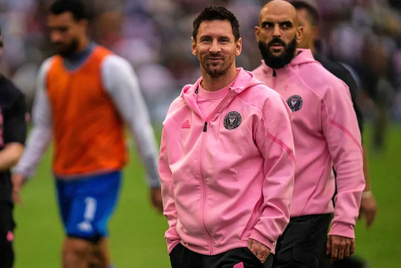
Celebrity brand ambassadors have, and will continue to have, a place in adland because they can be useful tools to market a product. For example, China's Chery Automobile Company last month enlisted Argentine soccer player Lionel Messi to represent its brand globally, giving it the opportunity to break out of its domestic mould. That story was picked up worldwide and audiences that had never heard of Chery are now a little more familiar with its cars.
Yet celebrity endorsements won't guarantee consumers' trust in a brand, and may even magnify its problems. The Penelope Cruz fake eyelash saga certainly didn't work in L'Oreal's favour in 2007. However, China - at least on the face of it - offers an environment less inclined towards cynicism. This is a market that can produce virtually everything, and burgeoning brands have the money to spend on high-profile figures to flog their wares.
Market analysts believe the essence of why celebrity endorsements are popular still holds in China, a market with an emerging middle class. Celebrities bring an air of glamour and privilege to products. Choosing the right spokesperson can also exhibit a brand's ingenuity. Chinese apparel brand Metersbonwe initially used musician Jay Chou, but when it created its Me & City line, it signed Prison Break star Wentworth Miller to front the brand, followed by Orlando Bloom and models Cole Mohr and Agness Deyn for new lines.
Introducing these fresh faces to Chinese consumers has the potential to peg a brand as a trendsetter. But analysts note that China's domestic pool of celebrities is quite limited for the scale of the country - audiences can see a whole lot of Jackie Chan, Jay Chao, Gong Li and Liu Xiang, both through legitimate deals and photo shopped onto brand posters in lower-tier cities. Finding a celebrity that is both recognisable to a Chinese audience and suitable as a true brand ambassador is difficult.
This hurdle has created a new sort of spokesperson across China - the inspirer. Pratik Thakar, executive VP and chief planning officer for McCann Worldgroup China, says he's noticed blogger Han Han has been involved in many endorsements recently. Meanwhile, David Liu, managing director of Weber Shandwick China, says he's seen entrepreneurs such as Sohu's founder Charles Zhang on ads.
But there have been brands that have successfully used China's top stars. Around the time of the Olympics, Liu Xiang endorsed 17 brands, but he was most associated with Nike. Olay, meanwhile, has had a long-term contract with Maggie Cheung and leveraged that partnership to support her charity project, the Women Innovation and Dream Fund.
The consensus among analysts is that, when it comes to China, certain rules apply: find a celebrity whose image complements the brand, and try to create a true spokesperson who can reoccur in campaigns over time. From there, it's down to consumer preference.
Got a view?
Email [email protected]
This article was originally published in the 20 May 2010 issue of Media.


.jpg&h=334&w=500&q=100&v=20250320&c=1)


.png&h=334&w=500&q=100&v=20250320&c=1)












.jpg&h=268&w=401&q=100&v=20250320&c=1)
